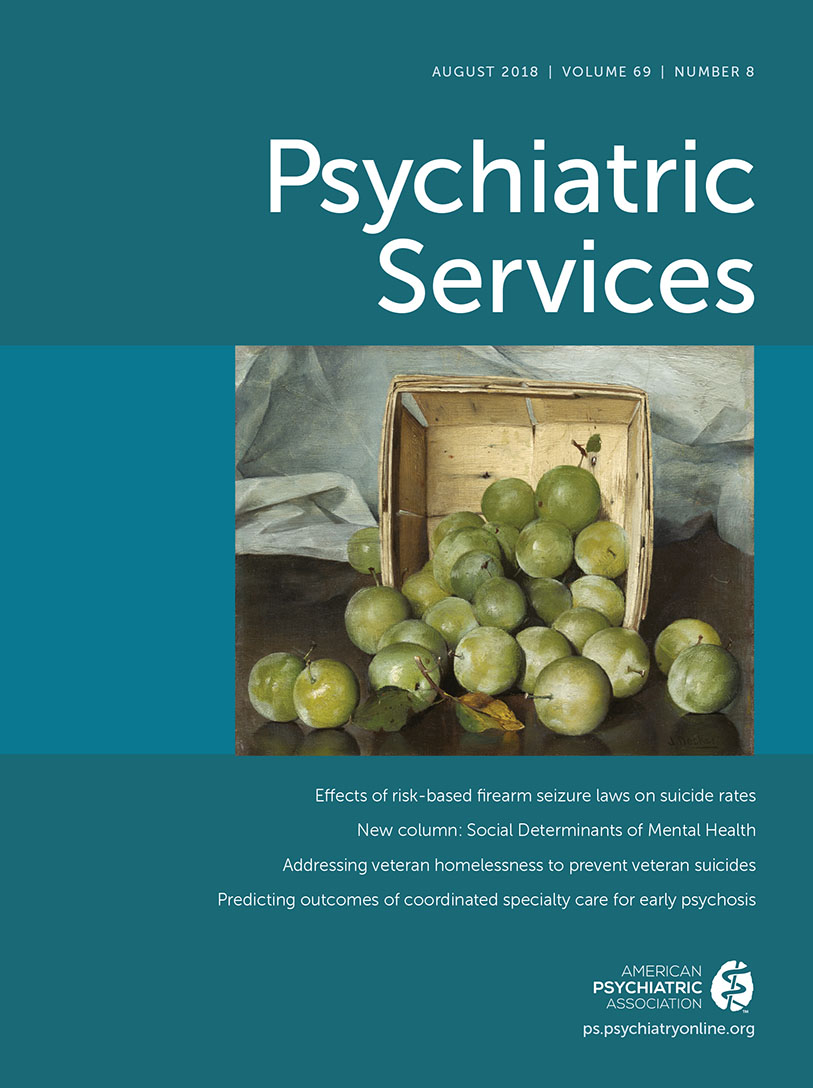The Influence of Team Functioning and Workload on Sustainability of Trauma-Focused Evidence-Based Psychotherapies
Abstract
Objective:
It has been over a decade since the U.S. Department of Veterans Affairs (VA) began formal dissemination and implementation of two trauma-focused evidence-based psychotherapies (TF-EBPs). The objective of this study was to examine the sustainability of the TF-EBPs and determine whether team functioning and workload were associated with TF-EBP sustainability.
Methods:
This observational study used VA administrative data for 6,251 patients with posttraumatic stress disorder (PTSD) and surveys from 78 providers from 10 purposefully selected PTSD clinical teams located in nine VA medical centers. The outcome was sustainability of TF-EBPs, which was based on British National Health System Sustainability Index scores (possible scores range from 0 to 100.90). Primary predictors included team functioning, workload, and TB-EBP reach to patients with PTSD. Multiple linear regression models were used to examine the influence of team functioning and workload on TF-EBP sustainability after adjustment for covariates that were significantly associated with sustainability.
Results:
Sustainability Index scores ranged from 53.15 to 100.90 across the 10 teams. Regression models showed that after adjustment for patient and facility characteristics, team functioning was positively associated (B=9.16, p<.001) and workload was negatively associated (B=–.28, p<.05) with TF-EBP sustainability.
Conclusions:
There was considerable variation across teams in TF-EBP sustainability. The contribution of team functioning and workload to the sustainability of evidence-based mental health care warrants further study.



